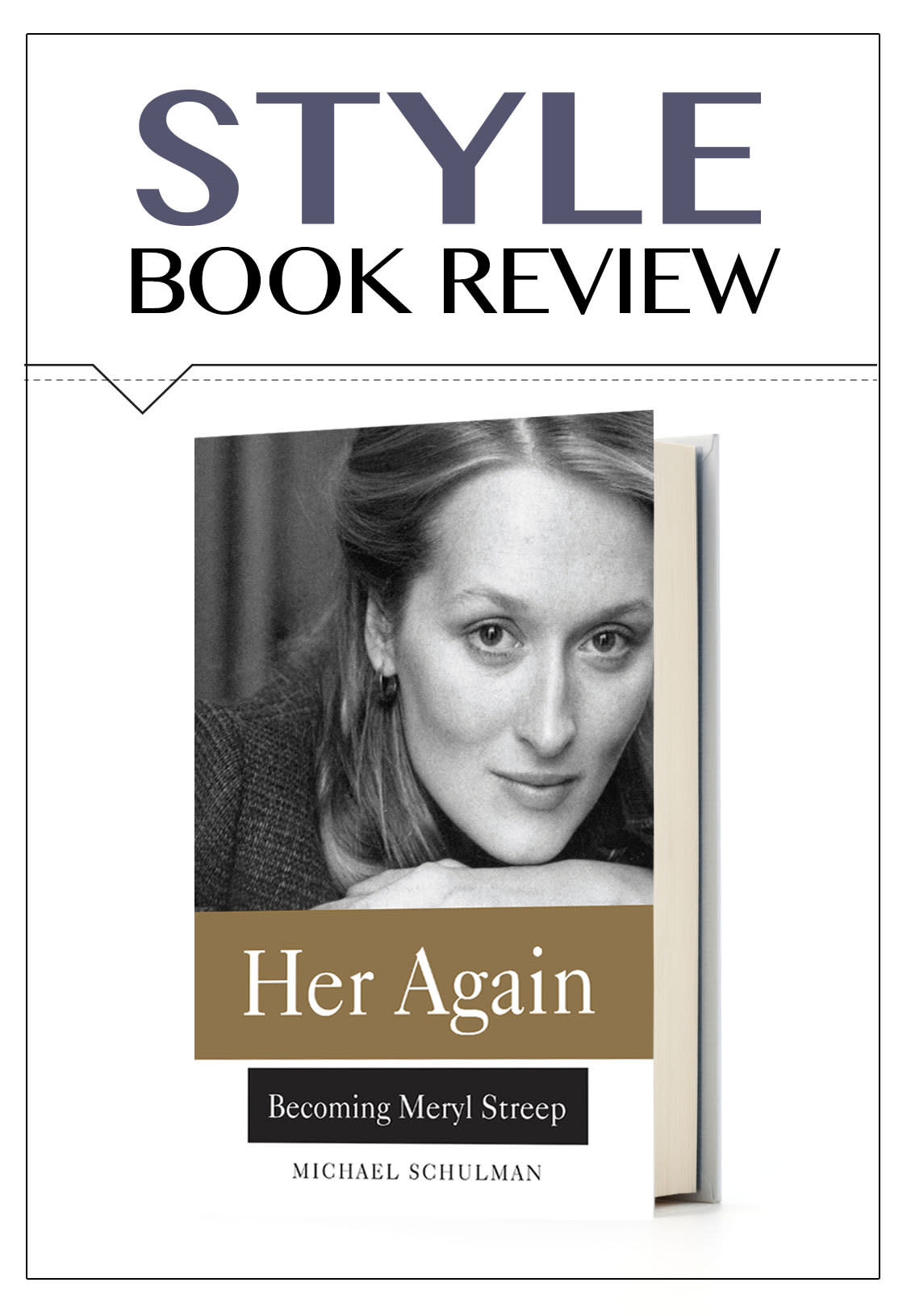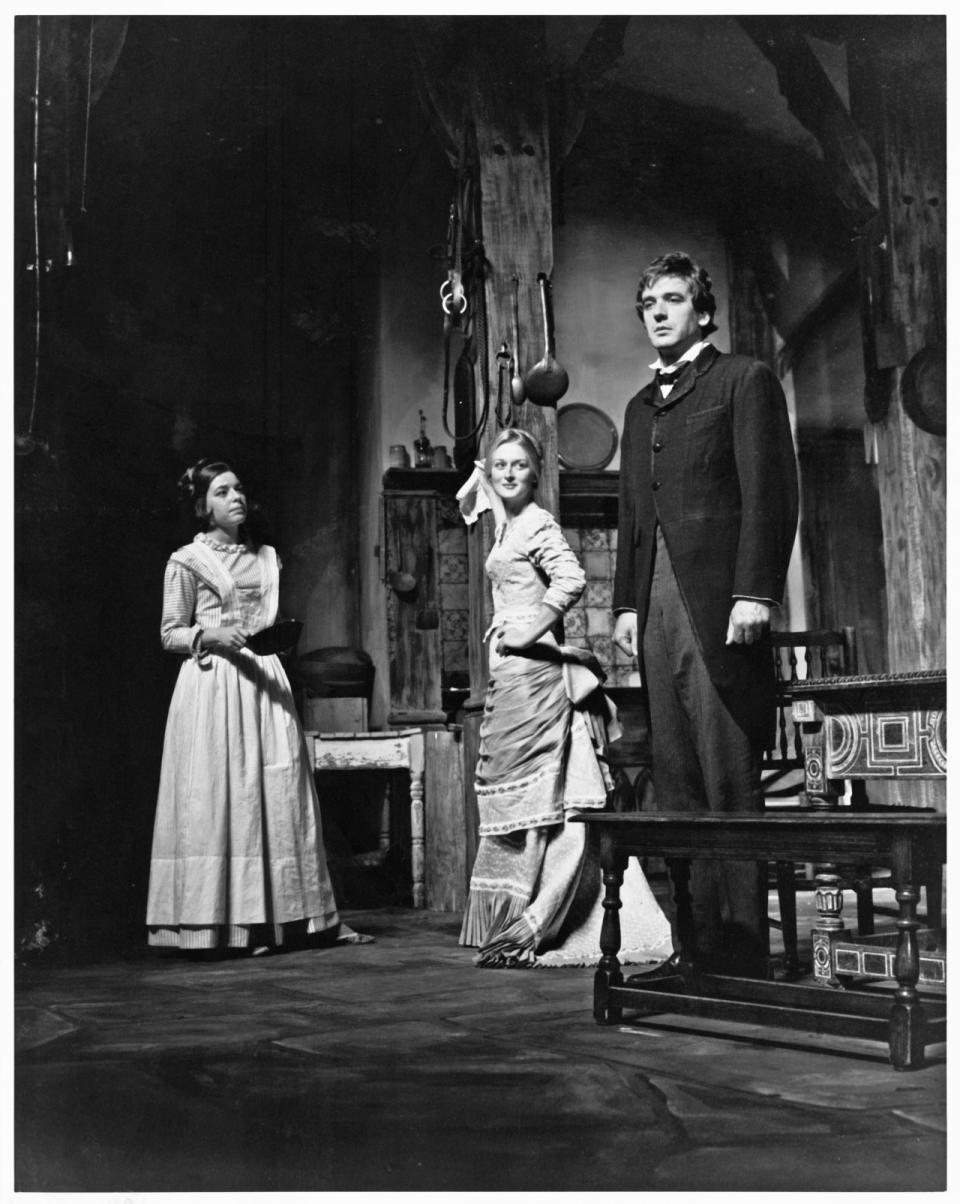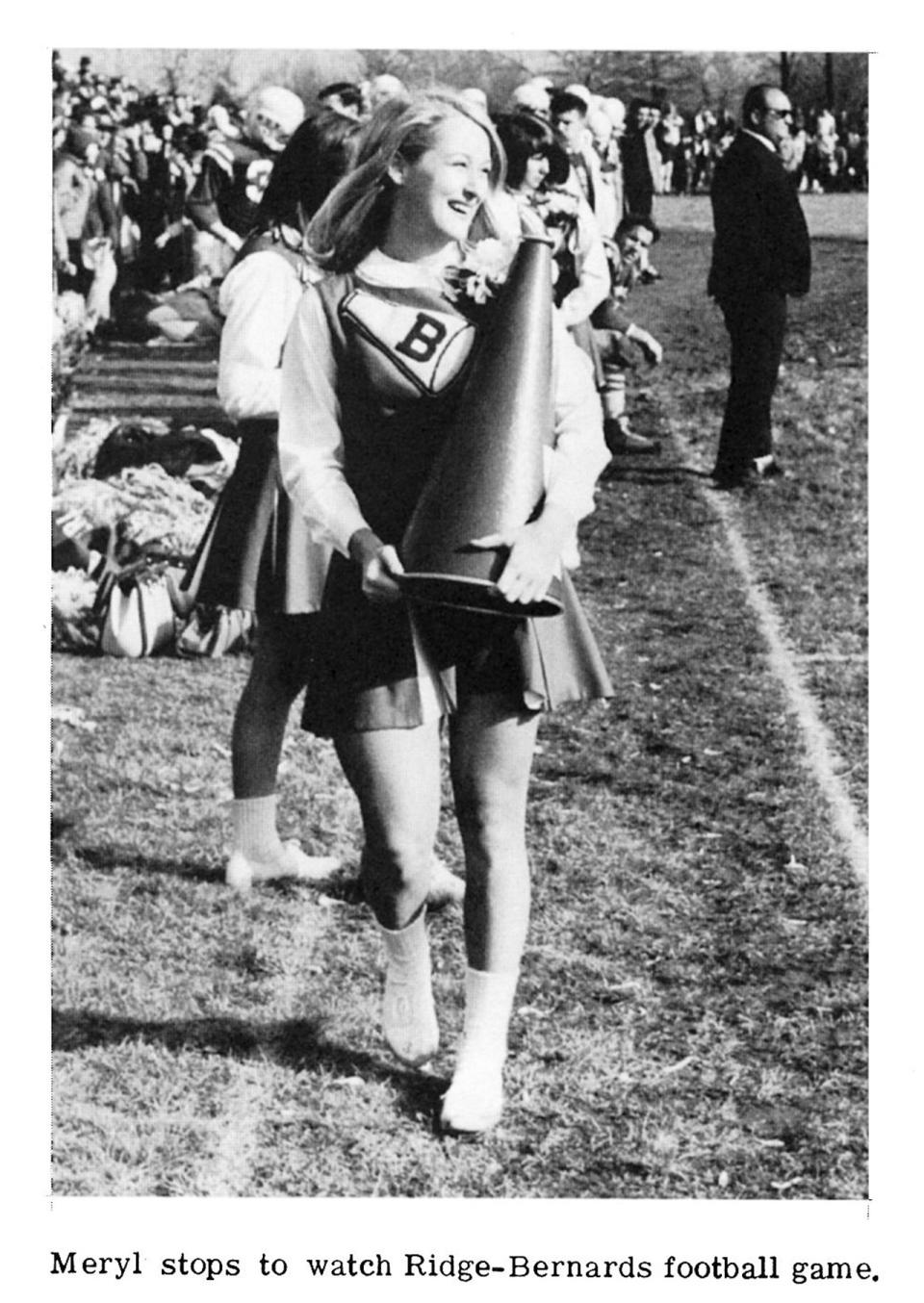You Won’t Believe What 20-Something Meryl Streep Had to Put Up With

Male chauvinist jerk directors, resentment from her acting peers, the early death of her beloved actor boyfriend, and even a (literal) slap in the face from Dustin Hoffman while filming 1979’s Kramer vs. Kramer. Those are all things a 20-something Meryl Streep had to endure in the 1970s at the start of her acting career. In his new book, Her Again: Becoming Meryl Streep (HarperCollins, $26.99), New Yorker contributor (and avowed Streep fanatic) Michael Schulman draws from countless interviews and a wide array of archival material to tell the story of Streep’s first decade as an actor, from her New Jersey hometown to hippie-era Vassar, then from Yale School of Drama to the stages of New York City — and finally to Hollywood, where she earned her first Oscar for the role of the ambivalent wife and mother in Kramer vs. Kramer. Here, Schulman talks about why and how he focused on Streep’s early career, how her personal journey reflected the broader era, and why he thinks there isn’t quite yet a millennial equivalent to Streep.
Yahoo Style: This is such a great read, so seamless and seemingly in Streep’s head. What inspired this book? What is it about Meryl for you?
Michael Schulman: I’ve always admired her. I think she’s the greatest actress of her generation. I also love her acceptance speeches, where she manages to be both self-deprecating and grand at the same time. She seems to have been really liberated the past decade and at the top of her abilities at 66, which is amazing. I thought to myself, If I had to think about the same person every day for two years while writing a book, who would it be? And what made it come together was the decision not to do a soup-to-nuts biography but to focus on her 20s and her coming of age as a woman and an actor in New York theater and the new Hollywood of the 1970s.

Photo: Courtesy of C. Otis Sweezey
What’s the first Streep movie you saw?
I was born in 1981, so it would be The River Wild in 1994 — her only action movie. But my real love of her began in the late 2000s when she started doing The Devil Wears Prada and Julie and Julia. By this point she seems like she’s really having fun and entering a new creative phase.
What about her great films of the late 1970s and early 1980s? Kramer vs. Kramer, The Deer Hunter, The French Lieutenant’s Woman, Sophie’s Choice?
I got to them eventually, but my favorites aren’t the big ’80s epics. My favorite is a tie between Kramer vs. Kramer and The Devil Wears Prada. They’re both based on a book where her character is supposed to be the villain, but Streep flipped the movies on their head and made us empathize with her characters.
Have you met her? Did you ask her to participate in the book?
In 2009, I interviewed her and her kids when they all did a play reading together. We were at a reception and she tried to give me a glass of white win, but my hands were full with my pen, notebook, and recorder. So she put the glass on her palm and leaned in and said, “I’ll be your cocktail table. Everyone needs one.” And I’m standing there thinking, Oh my God, Meryl Streep is my cocktail table. So when I started the book, I wrote to her via her publicist to let her know I was writing the book. I reminded her she had once been my cocktail table and I said I was a big 1970s New York theater nerd writer, not just a random Mamma Mia fan. And in a week she wrote back a note that I really love because it was in her voice. She said, “Dear Michael … here’s the deal.” She aired her anxieties about someone writing a book about her, which is understandable. She doesn’t like people putting her on a pedestal. She wrote, “Leave me to the thing I love. I love acting. But being called the greatest living actress is a designation not even my own mother would sanction. It’s the opposite of good or valuable or useful. It’s a curse for a working actor.” Her publicist has a copy of the book, but I haven’t heard if she’s read it, and I don’t expect to.
What other actresses do you love? And why Streep above all?
Lisa Kudrow, Cate Blanchett, Julianne Moore, and Sarah Paulson. But Meryl has this incredible self-possession, this command over every part of herself. She can do any accent and has an incredible sense of timing and rhythm, but she also has a way of delivering a line that infuses it with two feelings at once. She can communicate cognitive dissonance. She started out at Yale as a great comic actress and she didn’t get to do comic roles in film until the late 1980s and early 1990s, with She-Devil and Death Becomes Her.
I have a friend who’s really into comic books who read an early version of this book and said that it reminded him of a superhero origin story. What’s interesting isn’t Streep’s talents per se but how she learned to use them. She always had this knack for mimicry, but in high school she was pursuing this shallow goal of being the most popular girl, the homecoming queen. But then in college and grad school, she discovered feminism and deepened her craft, so that by the time she gets to Kramer vs. Kramer, she’s developed a worldview and can sway the balance of a story.

Photo: Courtesy of the Bernardsville Public Library Local History Collection
You talked to more than 80 of her friends, ex-boyfriends, classmates, colleagues, et cetera for the book.
Yes, and to my knowledge she didn’t try to prevent them from talking to me, because about 95 percent said yes.
Considering that she didn’t talk to you, you did an amazing job of writing the book almost from inside her own head.
But I didn’t make any assumptions or make stuff up. Everything is from sources or old interviews she did. Like one when she was 29 and said, “My first year in New York, I told myself, I’m 26 and I’ve really go to make it this year.” I also got to read things like letters she sent her high school sweetheart.
What was the hardest part?
Not being able to ask her simple questions like what street her voice lessons had been on when she was a kid. I had to go on a scavenger hunt to find out details like that.
What would you tell her about why you wrote this book?
She would very humbly say that she is just a vessel for her characters, but I don’t think that’s true. I think we learn something important from looking at her origins and her own biography. She was a product of the 1970s and came up in the time of Ms. magazine and Gloria Steinem, which helped me figure out why she made the choices she did and break the mold of so many actresses who only played sex symbols or wives.
You present her quite heroically, as someone extremely capable and determined to have it all — career, relationships, friendships, a family. She was incredibly good to her actor boyfriend John Cazale when he was dying in the late 1970s, even while her own career was taking off, and she kept right on working after he died despite her grief. Does she have any flaws?
The fact that she always managed to become isolated by her own success and then doesn’t quite understand why her peers resent her, like when she was getting all the roles at Yale at the other female students’ expense. She’s so able to best everyone and then she kind of hates it. I think if you’re the best at something, you should just be the best. It took her time to master how to deal with her own superiority. Today we see her deftly cutting herself down, making jokes at her own expense in a very suave, funny endearing way. But that took time.
It’s really frustrating to read in your book about the bullshit she took from some — not all — male directors and colleagues. Most of all when, supposedly to “prepare” her for a scene in Kramer vs. Kramer, Dustin Hoffman slapped her. And then she didn’t complain and even kissed him on her way to the stage to get her Oscar.
I think it was part of the culture of the 1970s. It was the machismo that the male Method actors had then, thinking they had to live the role to play it well. Those guys saw acting as an extreme sport, with the Deer Hunter guys not showering for a month while playing prisoners of war. As for the slap and why she didn’t report him or complain, she never let emotion leak out, no matter how trying the circumstances were. She performed so wonderfully in that film, I think it was her way of proving to Hoffman that she didn’t need to be slapped.
There is such a conversation in Hollywood right now about women’s pay versus men’s and about what roles are offered to them. Do any millennial actresses seem to be following in her tradition?
I don’t really think so. Jennifer Lawrence is a Hollywood personality, which Meryl was never interested in being. Meryl has barely ever lived in Hollywood except for a few years in the early ’90s. Maybe Saorise Ronan because she has such poise or maybe Lupita Nyong’o, who also went to Yale and has such craft. But neither of those are perfect analogies. I also don’t think Hollywood has changed that much for women since Streep’s early days, unfortunately. Meryl freaked out and really scrambled when she turned 40, thinking she’d never again play good roles. And with the exception of her, Cate Blanchett, and Julianne Moore, it’s still very hard for actresses over 40. The field gets really sparse.

